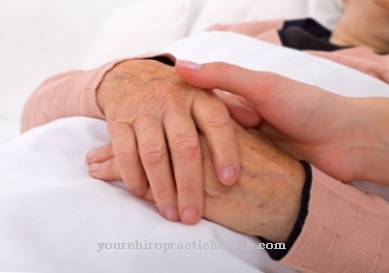Anal cancer or a Anal cancer is a malignant tumor in the area of the approximately six centimeters long anal canal. Anal cancer is very rare and affects women far more often than men. An anal carcinoma is - recognized early - easily curable.
What is anal cancer?
.jpg)
The anal canal is the area of the intestine, which is a few centimeters long and where the large intestine merges into the anus. This area is - unlike the rest of the intestine - very sensitive and anatomically complex.
The protective lining of the rectum slowly disappears and merges into the skin of the anus. Anal cancer is usually assigned to the group of colon tumors. In terms of its biology and its response to therapy, anal cancer is more similar to skin cancer.
causes
Untreated infections are seen as the main cause of the development of anal cancer. Mechanical stress on the anal canal also massively increases the risk of illness.
Fistulas or fissures, i.e. changes or small, painful tears in the tissue, also contribute to the development of an anal carcinoma. Condylomas are seen as a further cause. Condylomas are benign growths caused by HP viruses 16 and 18. HPV is usually transmitted to the affected areas through sexual intercourse.
A genetic susceptibility, poor diet and other typical cancer-causing causes such as smoking or excessive consumption of alcohol have not yet been confirmed as the cause of anal cancer.
Typical symptoms & signs
- Blood in the stool
- Painful bowel movements
- Anus itching (itching of the anus)
- Irregular bowel movements
Diagnosis & course
Self-diagnosis is difficult because the first symptoms can easily be mistaken for symptoms of hemorrhoids. These symptoms include pain when defecating, blood in the stool, increased itching around the anus, fecal incontinence or abnormally shaped stool.
If these symptoms occur, a doctor will first rule out hemorrhoids. If the doctor is unable to do this, he will first perform a thorough physical examination. He feels the anal canal with his finger. An experienced doctor will use this palpation test to detect anal cancer. If the initial suspicion of anal cancer is confirmed, the rectum is mirrored. Smaller tumors are removed directly.
In addition, it is clarified at which stage the cancer is, whether it has affected other organs and what size the individual foci are. The chances of a cure for anal cancer are very good, provided that the cancer was recognized early and has not yet metastasized. The 5-year chance of survival is around 80%, in the case of anal cancer in the anus it is even 90%.
As part of a subsequent rehabilitation, a patient learns to live with the consequences of his illness. Unfortunately, many patients suffer from radiation damage, i.e. burns in the lower abdomen, from fecal incontinence or from an artificial anus that remains permanently.
Complications
Tumors on the anal margin are usually removed surgically and thereby healed. This is especially true when it comes to superficial tumors. Complications in these cases are rare. Other anal tumors are usually treated with combined chemoradiotherapy. The tumor and the lymph nodes in the pelvis and in the groin are irradiated.
At the same time, the patient is subjected to chemotherapy. The cytostatics used in this process are not only toxic to cancer cells, but also to all rapidly dividing cells. The complications that regularly occur in the treatment of anal cancer are therefore often side effects of chemotherapy.
Hair loss, nail damage and mucous membrane problems are common. In addition, tiredness, exhaustion, nausea and depression are often observed. It is possible for women to enter menopause prematurely. The cytostatics can also impair blood formation in the bone marrow. Whether and to what extent these complications occur depends on the dosage and the individual disposition of the patient.
Although the treatment is much gentler today than it was a few years ago, irradiation of the affected areas can also lead to complications. Sometimes diarrhea and severe discomfort when urinating occur. Furthermore, skin inflammation occurs in the anal area. However, these side effects are usually not permanent and subside several weeks after the end of the radiotherapy. In cases where combined chemoradiotherapy does not work, it is usually necessary to create an artificial intestinal outlet.
When should you go to the doctor?
Anal cancer is a malignant tumor that requires immediate treatment. A visit to a doctor is advised at the latest if symptoms such as irregular stool, itching or painful bowel movements occur. Regular constipation and other problems with bowel movements should also be clarified to rule out anal cancer and other gastrointestinal or gastrointestinal disorders. If there are clear signs of carcinoma in the anal area, it is advisable to see a doctor immediately.
If a growth develops in a relatively short time, which may even be accompanied by blood loss or sensory disorders in the affected region, medical advice is required. This is especially true if other symptoms such as severe pain or fatigue occur. In general, growths, fistulas or cysts whose cause is not clear should be medically examined and removed if necessary.
Anyone who has ever suffered from anal fissures, hemorrhoids or anal cancer should have regular preventive examinations. The family doctor must be consulted at the first signs of a new disease in the anal area. Further contact persons are the gastroenterologist and the coloproctologist.
Doctors & therapists in your area
Treatment & Therapy
In most cases, the tumors are first removed by surgery.In many cases it is necessary to place an artificial anus, which cannot be relocated in all cases after therapy has been completed. The operation is followed by chemotherapy in combination with radiation.
Chemotherapy includes cytostatics, i.e. drugs that prevent cells from growing. Cytostatics are cell toxins and have an effect on the formation of mucous membranes and blood formation, among other things.
The patient therefore suffers from the typical side effects - nausea, vomiting, hair loss - that chemotherapy brings with it. Since chemotherapy is not permanently effective in anal cancer, additional radiation is provided. Unfortunately, side effects are also to be expected here.
Outlook & forecast
Since anal cancer is a cancer, the further course of this disease depends heavily on the time of diagnosis and treatment. As a rule, the disease progresses positively if the treatment of the anal cancer starts early. Complications largely occur with a late diagnosis, when metastases may have formed.
The patients suffer primarily from bloody stools due to anal cancer. For many people, bloody stool leads to panic attacks or sweating. It can also cause pain when defecating and itching in the anus. These complaints are very uncomfortable and significantly reduce the patient's quality of life. The bowel movements are also irregular.
In most cases, anal cancer is removed by surgery. This usually results in a positive course of the disease. Likewise, those affected continue to need chemotherapy to completely limit the cancer. This usually leads to various side effects. Whether anal cancer will lead to a reduction in life expectancy cannot generally be predicted.
prevention
Although a direct connection between a healthy lifestyle and the exclusion of anal cancer has not yet been confirmed, a healthy lifestyle, i.e. a healthy diet, plenty of sport and exercise, and avoiding alcohol and nicotine is advisable. In addition, sexual hygiene should be observed during anal intercourse. Condoms prevent the transmission of HP viruses and should therefore always be used. A doctor should be consulted immediately at the first signs of anal cancer.
Aftercare
Anal cancer (anal cancer) is a condition that should be treated by the doctor. The patient is also involved in the aftercare in consultation with the doctor. The doctor with whom the follow-up care is discussed can be a proctologist, oncologist, the treating surgeon and also the general practitioner.
The aftercare is about regenerating the anal area from the consequences of treatment such as surgery and radiation therapy, recognizing a possible relapse promptly and also restoring the patient's physical and mental well-being. There is a bundle of measures for this, which are tailored to the patient as part of an individual aftercare concept.
The follow-up appointments with the treating physician must be strictly adhered to. Care and cleaning of the stressed anal region must be coordinated closely with the doctors. In general, however, it makes sense to avoid harsh tensides or damp toilet paper. Stool regulation during aftercare is important, as both constipation and diarrhea have a negative impact on tissue regeneration.
The stool is often regulated with sufficient amounts of water and a diet rich in fiber, which can be supplemented with psyllium husks in consultation with the medical professionals. The immune system can be stabilized through a healthy diet, exercise and adequate sleep. Discussions with psycho-oncologists, psychologists or friends can often significantly improve mental well-being. Self-help groups also offer valuable support.
You can do that yourself
If anal cancer is suspected, a doctor should be consulted as soon as possible. Anal cancer requires immediate treatment, not only with drugs and surgery, but also with therapeutic measures. The patient can support the treatment by following the doctor's instructions regarding diet, personal hygiene and physical exertion.
After an operation, the affected person should be rested and kept warm. A change in diet can prevent the surgical wound from tearing open again due to stool that is too firm. Typically, in the first few days after an operation, a gentle diet with lots of fruit and vegetables, light foods and lean meat is recommended. In order to stimulate the activity of the gastrointestinal tract, sufficient water should be drunk. The healing process must also be checked at regular intervals after the operation. This is achieved through close medical supervision.
Annual colon cancer screening should be done after treatment is complete. Elderly patients and patients with chronic diseases of the bowel in particular should have regular examinations. In this way, any recurrences can be identified and treated at an early stage before metastasis occurs.

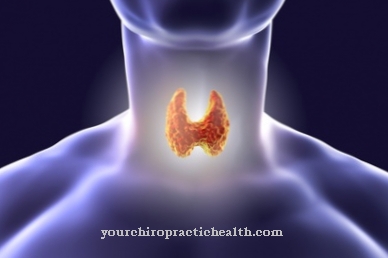

.jpg)

.jpg)
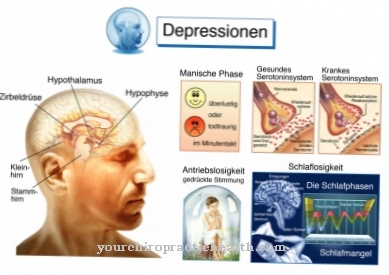




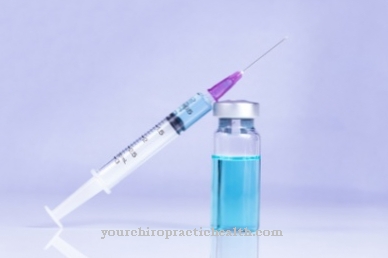
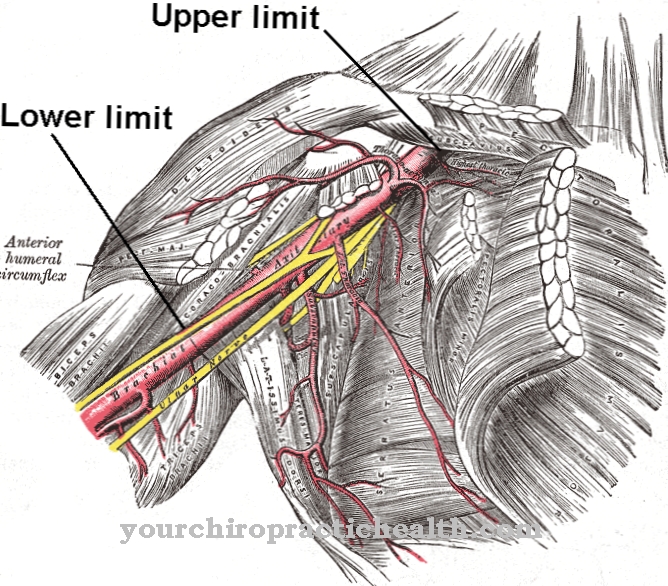




.jpg)




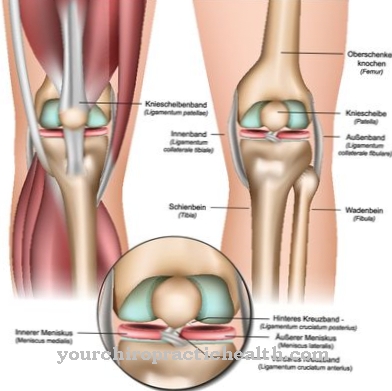
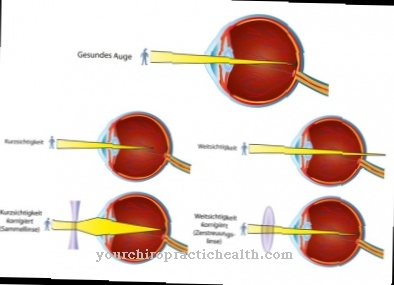
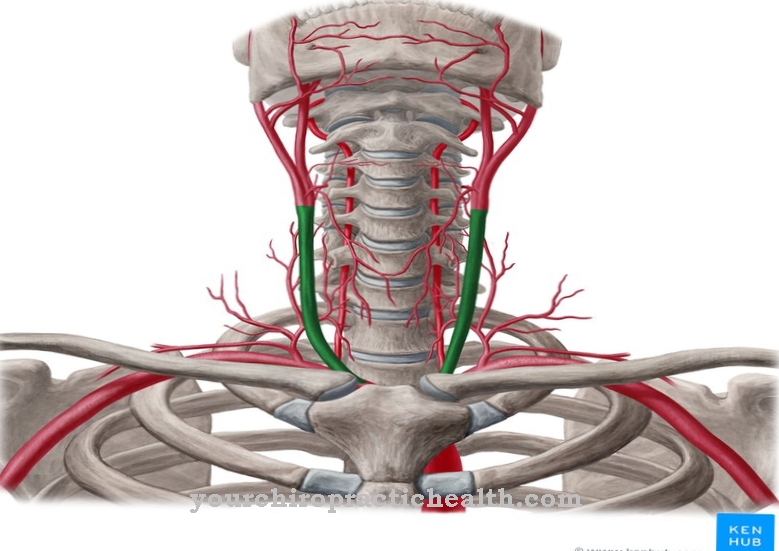
.jpg)

